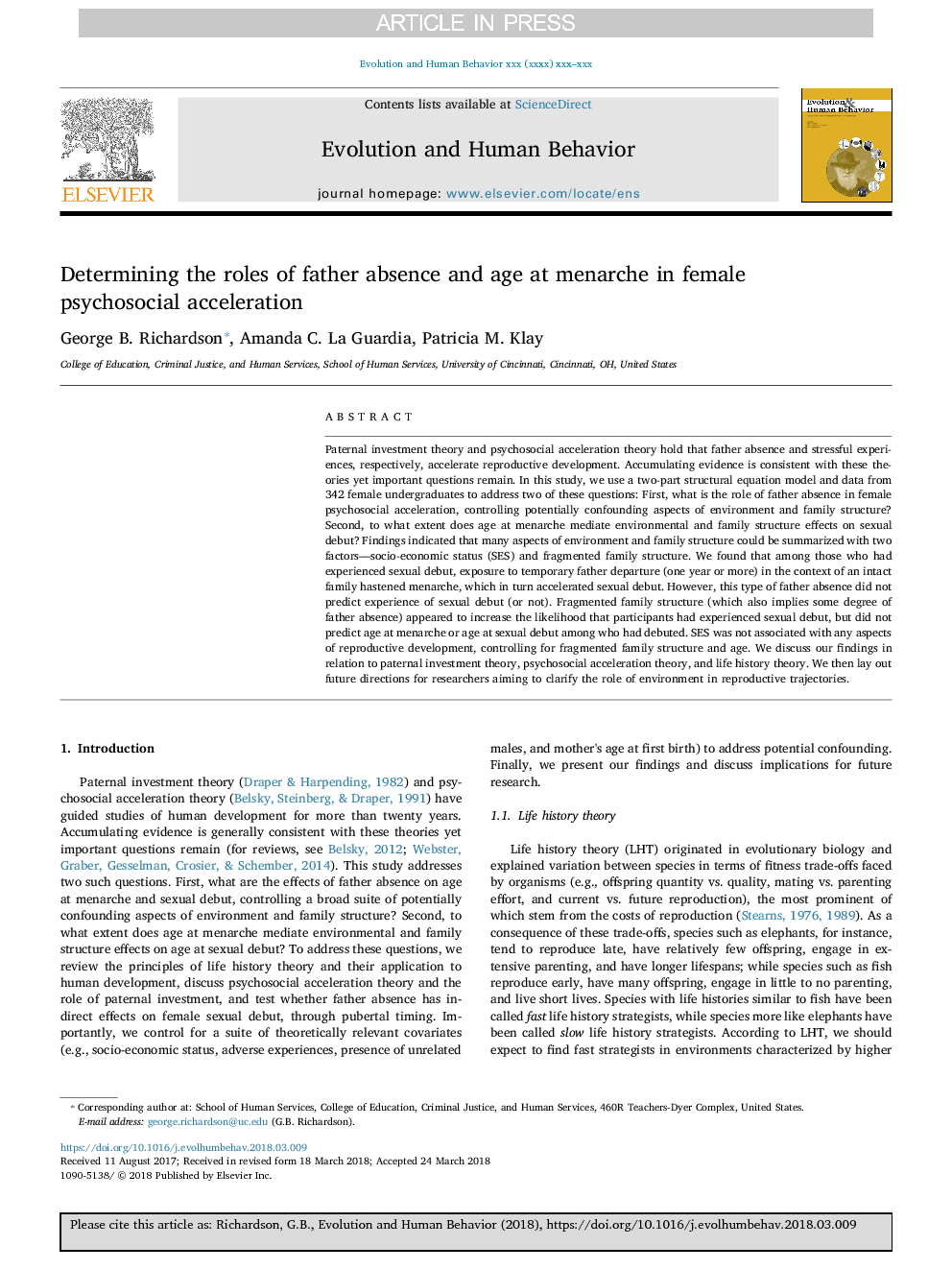ترجمه فارسی عنوان مقاله
تعیین نقش غیبت پدر و سن در منارک در شتابزدگی روانی اجتماعی
عنوان انگلیسی
Determining the roles of father absence and age at menarche in female psychosocial acceleration
| کد مقاله | سال انتشار | تعداد صفحات مقاله انگلیسی |
|---|---|---|
| 156608 | 2018 | 10 صفحه PDF |
منبع

Publisher : Elsevier - Science Direct (الزویر - ساینس دایرکت)
Journal : Evolution and Human Behavior, Available online 27 March 2018

